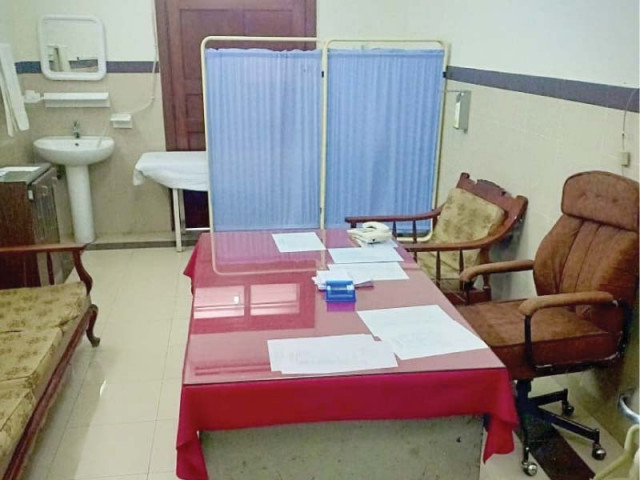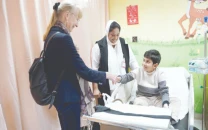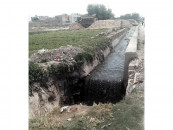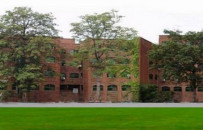Protest over MTI Act continues as patients suffer in Rawalpindi
The act would affect regular medical and para-medical staff only

View of an empty OPD clinic at Holy Family Hospital during doctors’ strike. PHOTO: EXPRESS
However, the condition in Benazir Hospital remained better where the patients were given consultation in OPD by senior doctors whereas the patients faced extreme difficulties in other two where an alternate consultation system completely failed.
The Rawalpindi Medical University Vice Chancellor Dr Muhammad Omar, remained unsuccessful to contrive a meeting between the government and Young Doctors Association (YDA).
He also visited the OPD at BBGH along with the medical superintendent, Dr. Rafiq Ahmed, to inspect the situation where the patients expressed satisfaction on the healthcare done for them.
Young doctors' protest continues in Punjab
YDA Punjab Punjab Chaiorman Dr Shoaib, said that MTI was a law against the interests of the medical and para-medical staff which would also hike the healthcare facilities. He added it would cause severe financial constraints to the employees and expressed that their strike would continue unless MTI was taken back.
The protest of medical and paramedical staff across public hospitals in Punjab over medical teaching institutions (MTI) Act has wreaked havoc as patients are facing extreme hardships due to lack of provision of health facilities to them.
The act would affect regular medical and para-medical staff only. Further, the contract base employment would also be enforced phase wise in hospitals after the imposition of the act.
Patients frustrated as OPDs remain closed for second day
The act would enforce an affordability-based programme for healthcare facilities. The system would be divided into three categories under which the first one of which includes patients from impoverished backgrounds, the second category would include low-income patients and the third category includes patients who head to the government hospitals despite belonging to affluent backgrounds. In this regard, the Rawalpindi Medical University Vice Chancellor Dr Muhammad Omar, said that the act has still not been presented in the assembly. He added that its enforcement was subject to its final legislation.
He expressed that the basic aim of its enforcement was to provide free of cost treatment to the needy people by collecting from the ones who could afford.
Published in The Express Tribune, May 5th, 2019.



















COMMENTS
Comments are moderated and generally will be posted if they are on-topic and not abusive.
For more information, please see our Comments FAQ